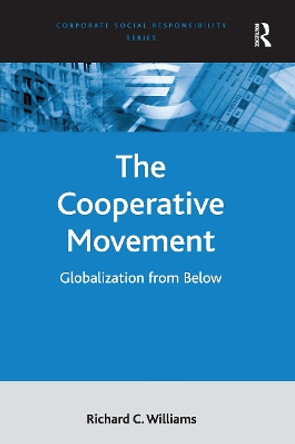Richard Williams surveys the history of the cooperative movement from its origins in the 18th century and deals with the theory of cooperation, as contrasted with the 'Standard Economic Model', based on competition. The book contains the results of field studies of a number of successful cooperatives both in the developed and developing world. It includes insights from personal interviews of cooperative members and concludes by considering the successes and challenges of the cooperative movement as an alternative to the global neo-colonialism and imperialism that now characterizes free-market capitalist approaches to globalization. The book considers democratic and local control of essential economic activities such as the production, distribution, and retailing of goods and services. It suggests that cooperative approaches to these economic activities are already reducing poverty and resulting in equitable distributions of wealth and income without plundering the resources of developing countries.
About the AuthorRichard C. Williams is from the School of Professional Studies, Regis University, USA.
Reviews'This book, just begging to be written, is destined to be the classic that corrects the record. With its incisive analysis, it has convinced me that an elitist system has imposed a faulty view of cooperatives upon us.' J.W. Smith, Institute for Economic Democracy, USA
Book InformationISBN 9780754670384
Author Richard C. WilliamsFormat Hardback
Page Count 252
Imprint RoutledgePublisher Taylor & Francis Ltd
Weight(grams) 589g








